Silence Prolongs Suffering: Addressing Arbitrary Detention Worldwide
60th session of the Human Rights Council
08 September – 08 October 2025
Item 3: Interactive Dialogue with the Working Group on Arbitrary Detention
16 September 2025
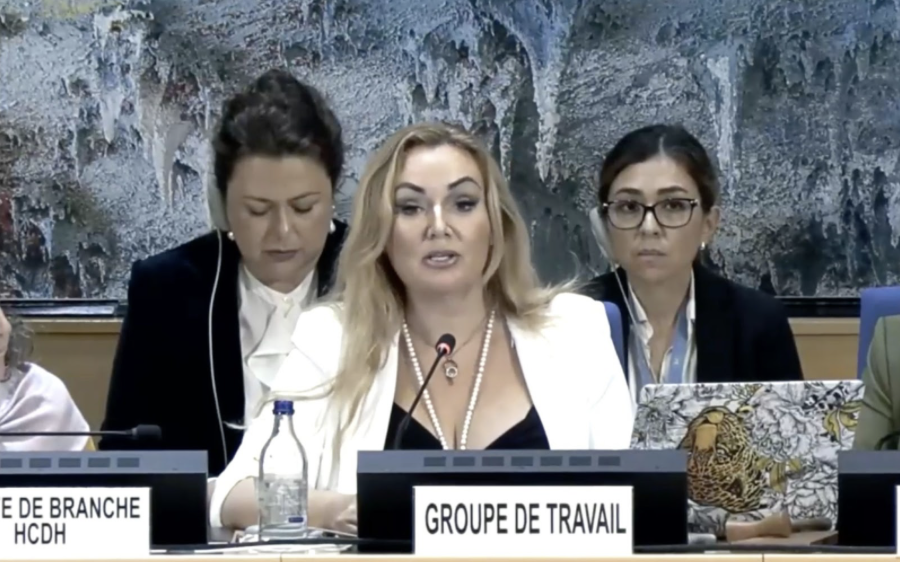
By Astrid Bochnakian / GICJ
Executive summary
At its 60th session, the Human Rights Council held an interactive dialogue with the Working Group on Arbitrary Detention, which presented its 2024 annual report and findings from its country visit to Canada. The WG issued 71 opinions covering 149 individuals across 41 countries, alongside 30 urgent appeals concerning over 550 persons, while highlighting a troubling pattern of reprisals against those cooperating with its mandate and the persistently low rate of State responses. The thematic focus on alternatives to pretrial detention (PTD) underscored that detention must remain an exception, not the rule, under international law, and stressed the need for proportionate, non-discriminatory, and achievable alternatives.
During its visit to Canada, the WG welcomed reforms such as reduced incarceration rates, restorative justice initiatives, and culturally appropriate rehabilitation programs for Indigenous offenders, while raising concerns about systemic discrimination, flawed bail processes, poor detention conditions, and the disproportionate number of Indigenous populations and people of African descent in the correctional system. In the dialogue, Chair-Rapporteur Dr. Ganna Yudkivska urged States to engage fully with the WG, warning that “silence prolongs suffering while engagement saves lives.” Delegates from various regions expressed support for the WG’s mandate, condemned arbitrary detention as a tool of repression, and called for stronger safeguards, particularly in contexts such as Belarus, Russia, Afghanistan, and the Occupied Palestinian Territories. NGOs echoed concerns over systemic abuses, especially Israel’s use of administrative detention.
The WG concluded that meaningful cooperation with States is essential for the mandate to be effective, reiterating that alternatives to PTD are both a safeguard for justice and a reflection of the health of national legal systems.
Geneva International Centre for Justice (GICJ) commends the Working Group’s vital efforts to end arbitrary detention, applauding its opinions, appeals, and recommendations as essential to upholding international law. We condemn reprisals against those cooperating with the WG and call on all States to fully engage by responding to its communications and urgent appeals.
We are deeply concerned about the widespread use of arbitrary detention in the Occupied Palestinian Territories (OPT), where individuals of all ages are often held without charge or fair trial. The extensive resort to administrative detention violates the rights to liberty and due process, fostering a broader climate of fear, repression, and systemic discrimination.
GICJ urges States to end the arbitrary detention of human rights defenders, activists, lawyers, journalists, and others exercising their rights. We further call on governments to ensure accessible, non-discriminatory alternatives to pretrial detention that are both practical and effective.
Background
The Working Group (WG) on Arbitrary Detention was established by the Commission on
Human Rights in its resolution 1991/42. It was entrusted with a mandate to:
- investigate cases of alleged arbitrary deprivation of liberty according to the standards set in the Universal Declaration of Human Rights and other international instruments accepted by the States concerned;
- seek and receive information from governments and organisations, and receive information from the individuals concerned;
- send urgent appeals and communications to governments regarding alleged cases of arbitrary detention for clarification or bringing their attention to the cases ;
- conduct country visits upon invitation of the governments ;
- assist States in preventing arbitrary detention and facilitate consideration of future cases ;
- report to the HRC upon its activities, findings, conclusions and recommendations.
This mandate, which has been renewed by the Council every three years since 2006, aims to guarantee the protection of fundamental rights, including the rights to life, to physical integrity, to be free from torture or to cruel, inhuman or degrading treatment or punishment, and to be free from religious intolerance.
The WG is composed of five independent experts appointed by the Human Rights Council. During the period from 1 January to 31 December 2024, the WG was composed of Miriam Estrada-Castillo (Ecuador), Matthew Gillett (New Zealand), Priya Gopalan (Malaysia), Mumba Malila (Zambia) and Ganna Yudkivska (Ukraine). The Group is chaired by Dr Yudkivska.
The WG holds three sessions per year and regularly conducts country visits upon invitation. In 2024, it held its 99th, 100th and 101st sessions and conducted a visit to Canada from 13 to 24 May 2024, which was detailed in a specific report (A/HRC/60/26/Add 1).
Summary of the WG’s report
The WG presented to the Human Rights Council its report released in July 2025 on its 2024 activities and on the thematic issue of alternatives to pretrial detention (A/HRC/60/26).
In this reporting period, the WG issued 71 opinions, covering 149 individuals across 41 countries, noting a continued increase in reported releases over the past three years. It highlighted concerns about reprisals and intimidation against individuals involved in urgent appeals or communications, with 30 urgent appeals sent regarding 556 persons in 16 States, including Belarus, Iran, Iraq, the Russian Federation, and the United States. It reiterated the importance of State cooperation, while noting a persistently low response rate to its communications and follow-up procedures.
The thematic focus of this report is on alternatives to pretrial detention (PTD). The WG underscored the broad international consensus that PTD should remain the exception, not the rule, in line with Article 9 of the International Covenant of Civil and Political Rights (ICCPR).
Alternatives to PTD, such as bail, electronic monitoring, reporting obligations, or travel restrictions, are seen as key to reducing prison overcrowding and mitigating the disproportionate impact of detention on vulnerable groups. However, the WG warned that overly onerous bail conditions can render liberty illusory, and non-financial alternatives must remain necessary, proportionate, non-discriminatory, and practically achievable. While modern technologies provide cost-effective options, they raise potential privacy concerns under Article 17 of the ICCPR. The report stresses the need for a sufficient variety of legislative frameworks to ensure courts can adopt the most appropriate alternatives, aiming to support stakeholders in preventing arbitrary detention.
Summary of the WG’s country visit to Canada
The WG conducted a visit to Canada in May 2024 at the Government’s invitation. It welcomed positive developments such as decreasing incarceration rates, adherence to arrest procedures, limited use of force, reforms promoting non-carceral alternatives, restorative justice programmes, and the use of healing lodges for Indigenous offenders. Measures like the “ladder principle,” reduced reliance on cash bail, and expanded legal aid were also noted.
However, it identified significant challenges: inefficiencies in the bail process, unethical plea-bargaining practices, police interrogations without lawyers, and inadequate community support in reintegration. Detention conditions often failed to meet international standards, with structured intervention units isolating detainees. The WG expressed concern about the disproportionate population of Indigenous people and persons of African descent in the correctional system, systemic discrimination, and the lack of disaggregated data. It also highlighted issues such as adult sentences imposed on youth, indefinite detention of persons with psychosocial disabilities, and increasing involuntary drug treatment proposals. In migration contexts, the WG noted the absence of a maximum detention period, prison-like facilities, lack of legal representation, limited legal aid, and no independent oversight.
The WG concluded its report by urging Canada to adopt stronger safeguards to prevent arbitrary detention.
Summary of the Interactive Dialogue

“The 149 individuals across 41 countries who received opinions in 2024 represent merely the tip of an iceberg of injustice”, stated Dr. Ganna Yudkivska, the Chair-Rapporteur of the WG, during her opening address to the 60th session of the Human Rights Council on 17 September 2025. She emphasised the importance of the WG as a unique special procedure mandate, due to its role as a mechanism.
Presenting the WG’s 2024 report, its recommendations, and the findings of its country visit in Canada, Dr. Yudkivska reminded the Council of the necessary work of the WG, highlighting the growing results of the special procedure mechanism. She thanked the States that responded to communications and released detainees, stressing that State engagement is key to bringing change. She pointed to troubling obstacles to the WG’s work: nearly 6 out of 10 States don’t respond to communications and thus fail to fulfil their obligations. She further condemned the reprisals and intimidation against those seeking and collaborating with the WG, warning that silence prolongs suffering while engagement saves lives.
Dr. Yudkivska stressed that PTD is an area where practice and theory diverge, especially as bails turn the presumption of innocence into a monetised privilege. She reminded the international community that, according to international law, PDT must remain an exception, not the norm, and that alternatives must remain achievable.
Regarding the WG’s country visit to Canada, Dr. Yudkivska expressed her gratitude to the Canadian government for its positive response and its engagement with the mechanism. She highlighted positive change, namely a significant decrease in the overall consideration rate, more restorative justice mechanisms and community programs, and less reliance on cash bail. However, she pointed to persistent challenges affecting marginalised communities in particular. She also expressed concerns regarding the lack of maximum detention periods in the context of migration.
Statement of the country concerned
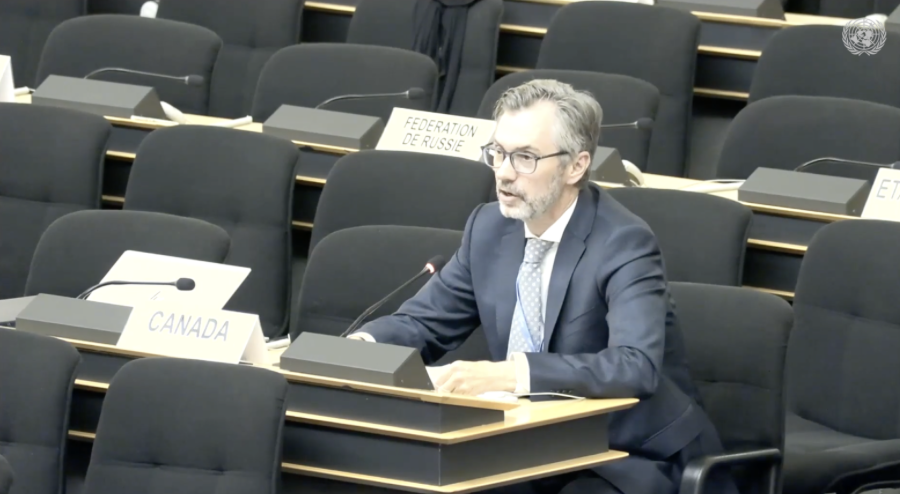
The delegate of Canada thanked the WG for presenting their report and for their constructive engagement towards critical progress, before reaffirming the government’s commitment to ensuring that laws align with Human Rights principles. He committed to reducing concerns in areas that called for reform, including the improvement of bail practices, restorative justice programs, and culturally appropriate programs. The delegate recognised the preponderance of Native and African Canadian in detention, and acknowledged the need for sustained and coordinated action at all levels, hand in hand with the concerned communities. He gave examples of reforms already implemented by provincial governments to address challenges noted by the WG. He concluded that Canada will examine the report’s conclusions before thanking the WG for their constructive comments.
Statements of other countries
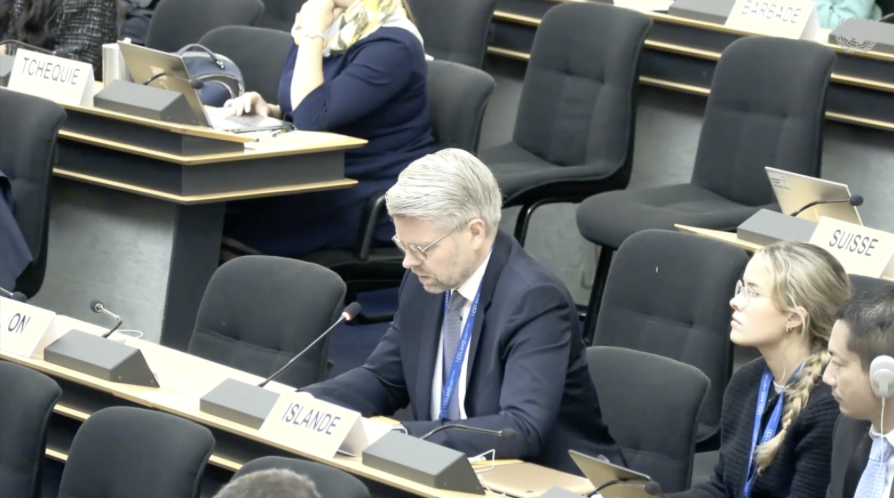
The delegate of Iceland, speaking on behalf of the Nordic and Baltic States, thanked the WG for its report, stressing that arbitrary detention is contrary to human rights and undermines the rights to life, to liberty and to an effective remedy. He urged States to continue to constructively engage with the WG and condemned those using arbitrary detention against those exercising their rights, reminding the Council that any restriction of liberty must be lawful. He concluded by stressing that PTD must remain practical, proportionate and non-discriminatory, especially non-financial ones.
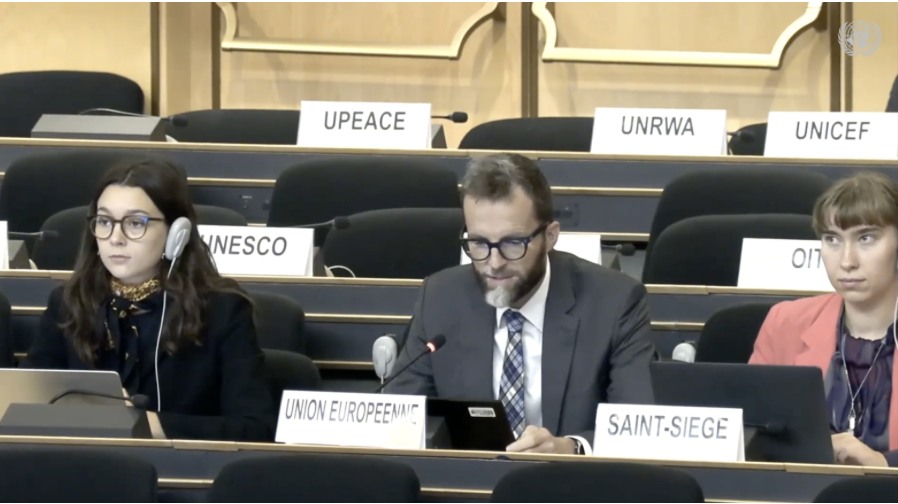
The delegate of the European Union thanked the WG and welcomed its consistent and efficient work, reiterating the EU’s support for the WG’s mandate. He firmly condemned the persistence of the practice of arbitrary detention. The delegate expressed concern regarding the insufficient response rate and urged States to cooperate and implement the WG’s opinions.
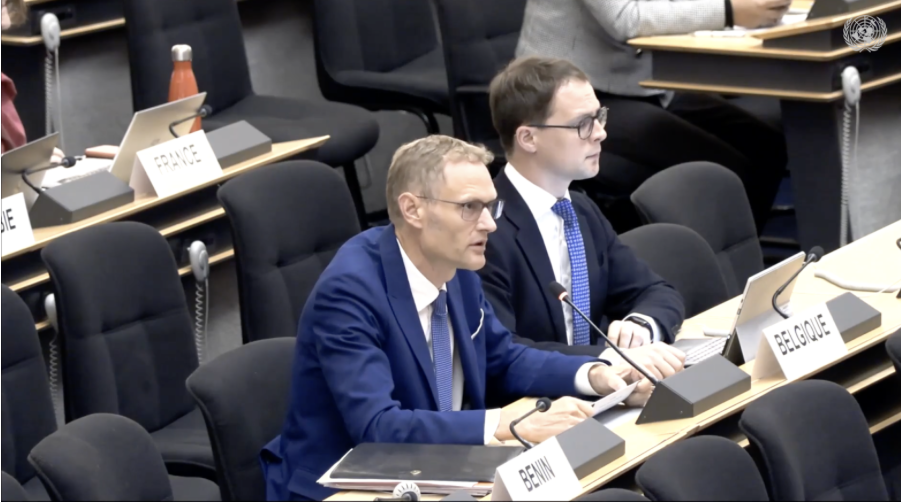
The delegate of Belgium, speaking on behalf of the Benelux countries, aligned with the EU statement, thanked the WG and supported their mandate. He deplored the low response rate from States and called on the international community to collaborate fully with the WG by implementing and responding to its communication. He denounced the acts of reprisal and intimidation against those seeking and collaborating with the WG as unacceptable. He urged all States to refrain from such actions and to protect the victims, calling for accountability. He concluded by asking the WG regarding the most pressing steps States should take to reduce PTD.
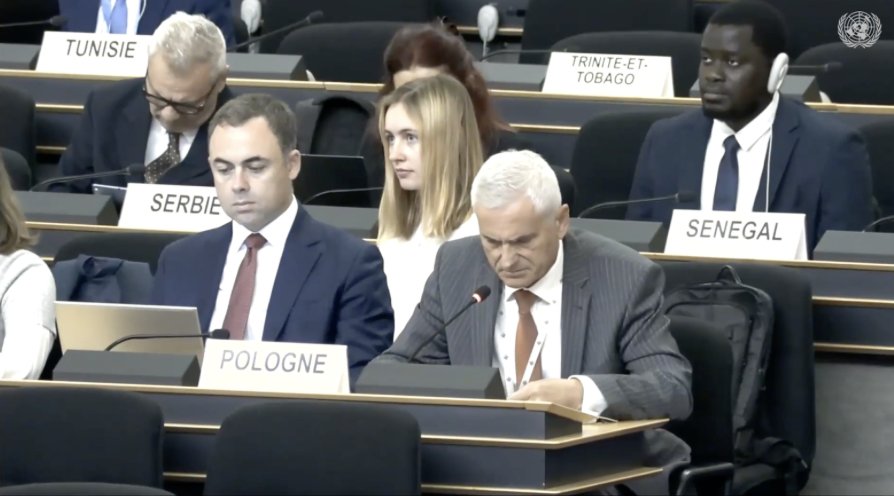
The delegate of Poland, speaking on behalf of the Lublin Triangle, expressed appreciation for the WG’s latest report. He emphasised his concern regarding the fact that arbitrary detention is still used as a preferred tool for repression and intimidation. He particularly deplored cases in Belarus and Russia, as well as in the temporarily occupied territories of Ukraine, denouncing the mistreatment and torture of detainees. The delegate concluded by welcoming the release of 45 individuals in 2024 and called on all States to cooperate with the WG.
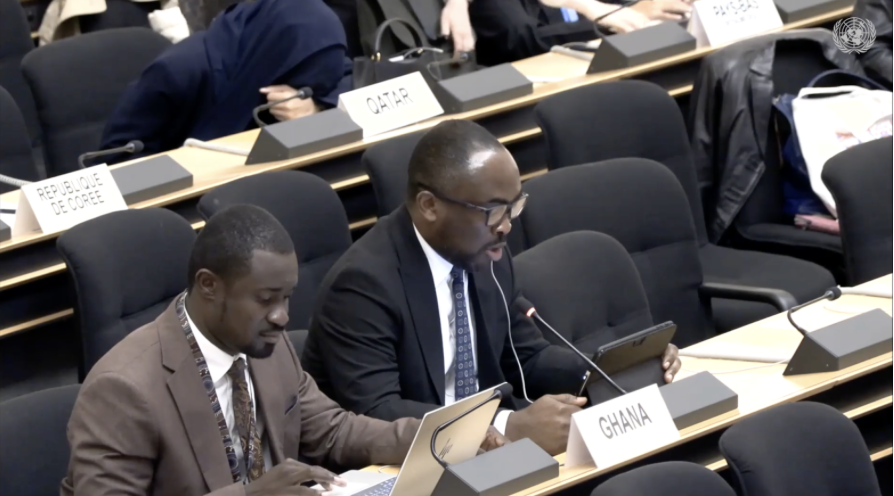
The delegate of Ghana, speaking on behalf of the African Group, commended the WG’s report and reminded that the African Charter on Human and Peoples’ Rights prohibits arbitrary detention. He reiterated that PTD must remain exceptional, not the norm. He stressed that the Guidelines on the Conditions of Arrest, Police Custody and Pre-Trial Detention in Africa, also known as the 2014 Luanda Guidelines, call for a periodic review of PTD and require the provision of appropriate remedies. The delegate concluded by reiterating Ghana’s commitment to continuous efforts to improve justice systems, including implementing alternatives to PTD.
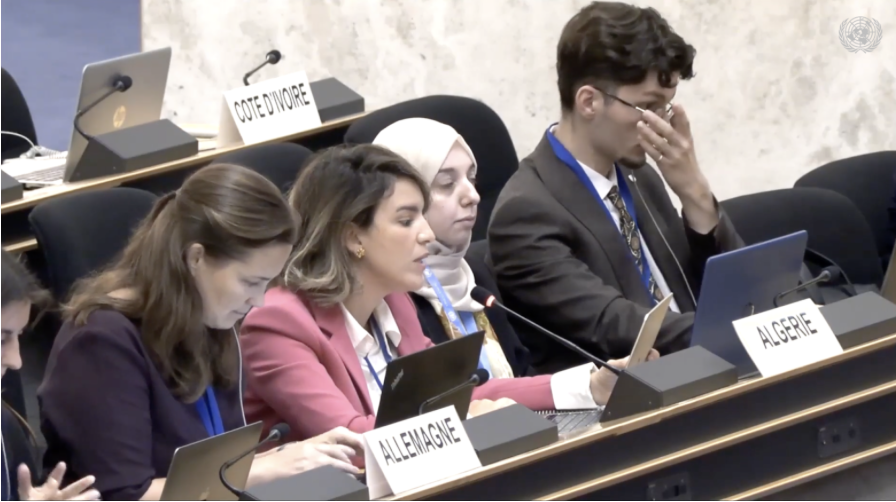
The delegate of Algeria, speaking on behalf of the Group of Arab States, referred to the situation in Gaza. She condemned the systematic, arbitrary arrests and detention of human rights defenders, journalists, women, and children by Israel. She stressed that thousands of Palestinians in the Occupied West Bank are detained without charges or proof of the commission of crimes, which is evidence of a systematic policy, tantamount to crimes against humanity. She called on the WG to be clearer in its observations regarding Palestine. She concluded by urging the international community to bring an end to the practice of arbitrary detention and hold accountable those using it.
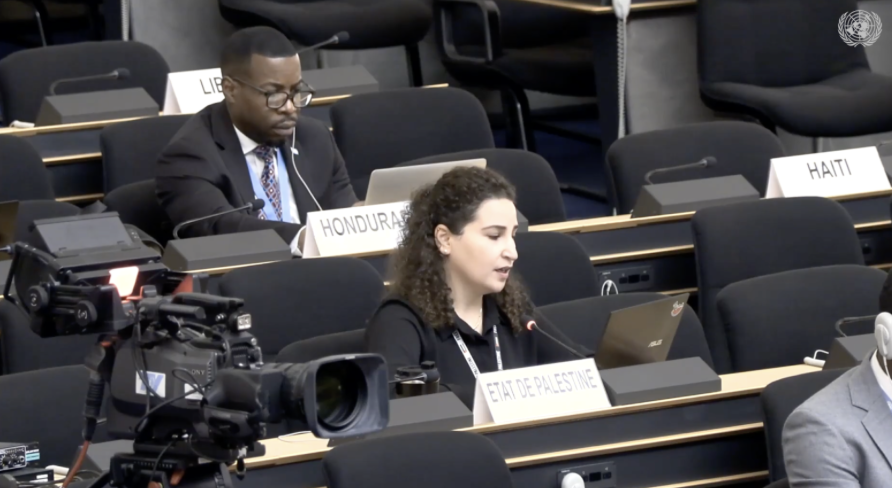
The delegate of the State of Palestine stressed that in the Occupied Palestinian Territories, arbitrary detention is not an exception but a system. She denounced the escalation of arbitrary detention in recent days, including against women and children, giving examples of cases and areas where it was used. The delegate stressed that thousands are being held in administrative detention, without charges or trials. She emphasised that detention is not used by Israel as a means of security but as a tool of oppression, intimidation and interrogation. She concluded by calling on the WG to be clearer on Palestine.
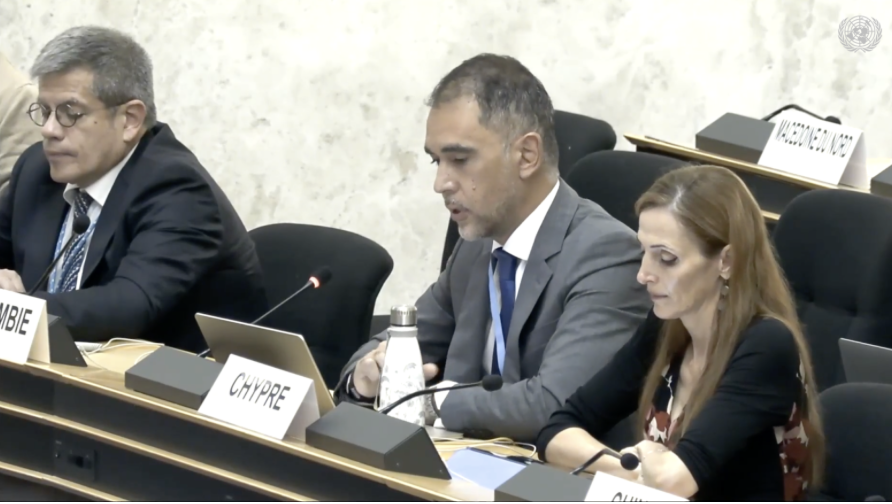
The delegate of Cyprus, aligning with the EU delegate statement, condemned the abduction of five of their citizens in the Turkish-occupied zone. He deplored their trial in military court and their obligation to remain in the occupied area. The delegate emphasised that this case was contrary to the principles of international law, including that PTD is an exception. He called on Turkey to abide by international law and release the five citizens.
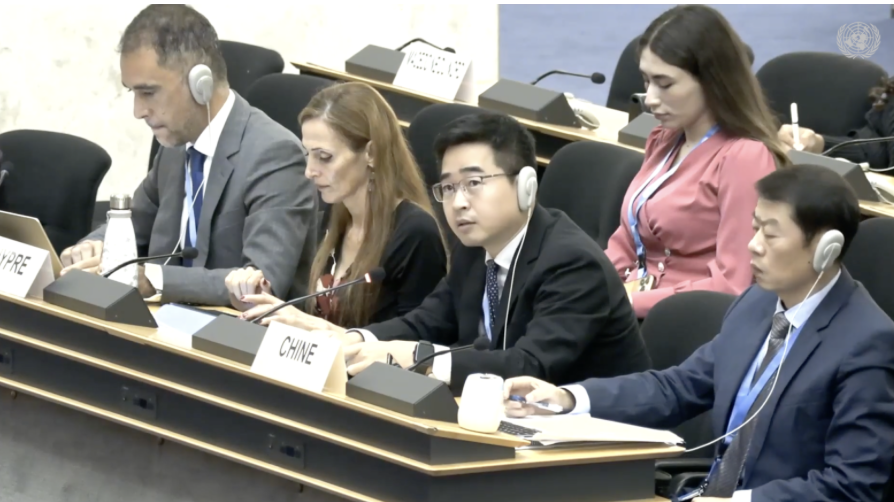
The delegate of China took note of the report of the WG, but stressed that the overwhelming majority of countries receiving communication are developing countries. He criticised what he defined as a double standard, calling for impartiality, according to the WG’s mandate and the Council’s code of conduct. The delegate emphasised that no one should be above the law and that conventions and sentences should be impartial, to safeguard social equity and justice. He concluded by reiterating China’s commitment to constructive dialogue and cooperation.
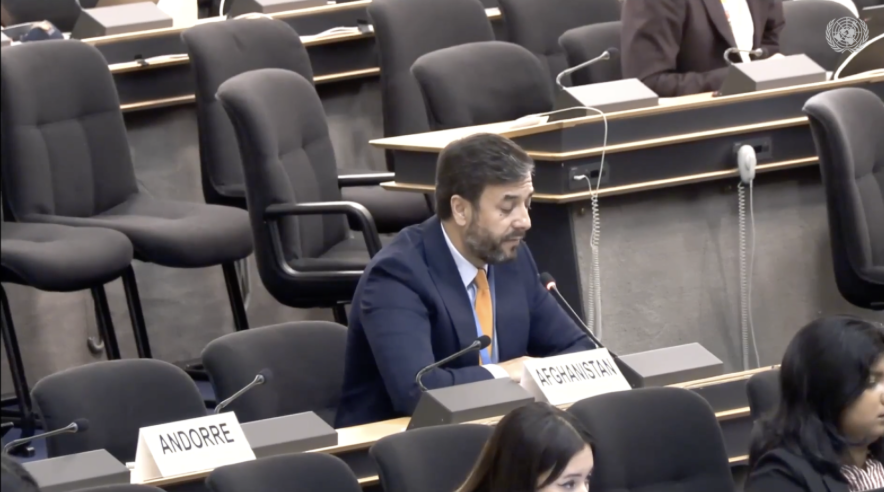
The delegate of Afghanistan denounced the use of arbitrary detention as a method of intimidation commonly used by the Talibans, targeting women, members of minority groups and former members of the security forces. He emphasised that the Talibans use the law for monitoring, arbitrary detention, and physical punishment, often resulting in enforced disappearances. The delegate deplored the reality: women are imprisoned in their houses or forced to endure violence. He recommended that the WG continues its investigation of the situation in Afghanistan to prevent such practices, before inquiring into the means to strengthen documentation of arbitrary detention in Afghanistan.
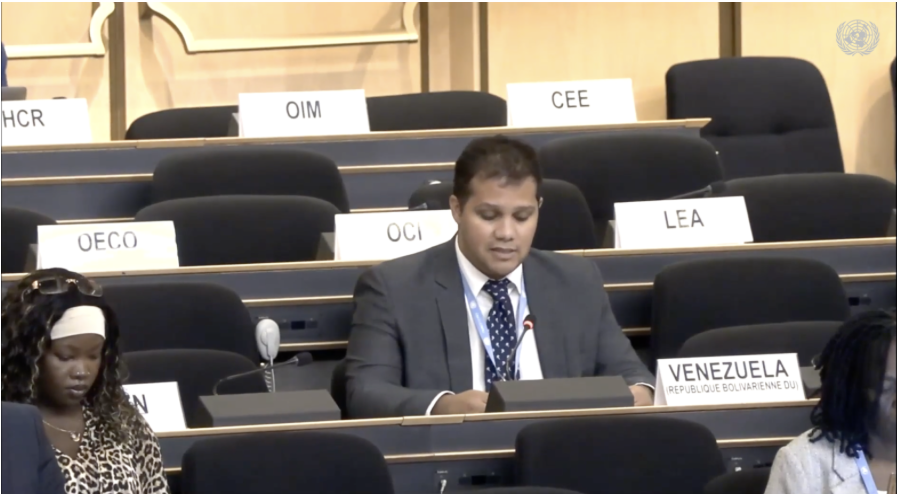
The delegate of Venezuela deplored the use by the United States of the Alien Enemy Act to arbitrarily detain Venezuelan migrants and transfer them to El Salvador without due process. He inquired about the steps the WG intends to take against the arbitrary detention of Venezuelans and the reparations they would receive for the torture suffered in El Salvador. The delegate concluded by stressing that such acts undermine the credibility of the WG and send a dangerous message of impunity.
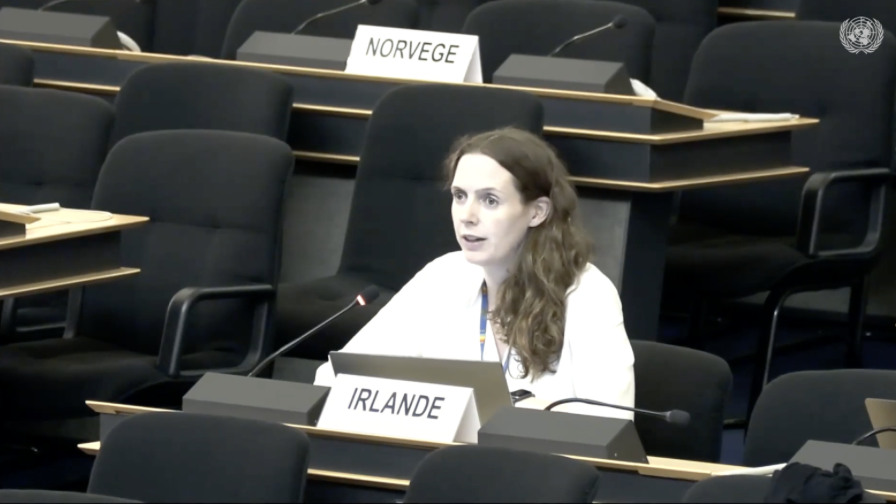
The delegate of Ireland called for the immediate release of all persons arbitrarily detained. She denounced the use of arbitrary detention as a tool of repression, stressing that it violates the right to participate in public life, which has a crucial role in society and should be exercised without fear of reprisal.
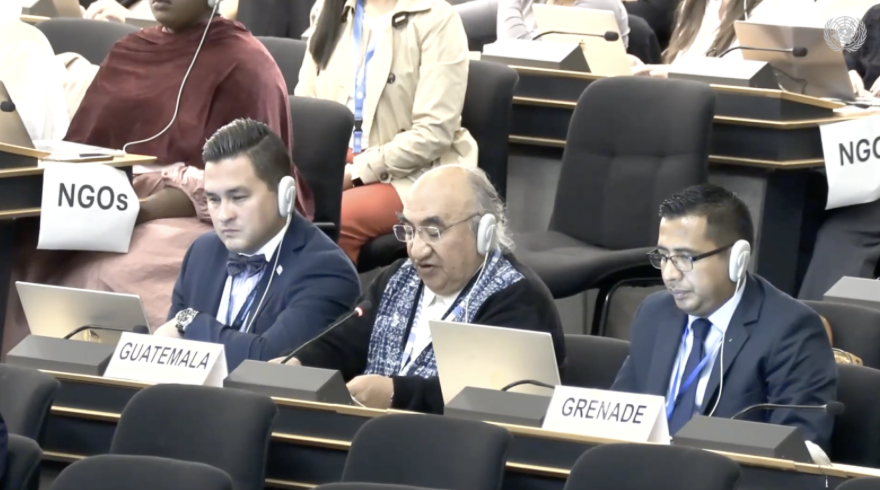
The delegate of Guatemala expressed his gratitude to the WG for its report and shared his concerns regarding the persistence of criminalisation and arbitrary detention in national justice systems, especially against human rights defenders and journalists. He stressed the need to ensure the criminal is not used as a tool of intimidation and to guarantee the rights of individuals. The delegate concluded by asking the WG to convene a country visit to Guatemala.
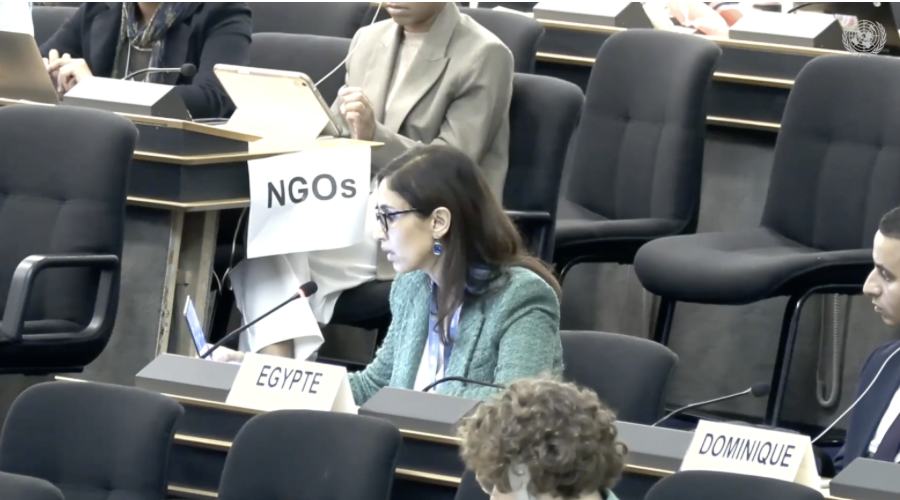
The delegate of Egypt drew the Council’s attention to the fact that some parties continue to use the special procedure mechanism to politically target other parties, without fully cooperating with the WG. She asked the WG to continue to verify the credibility of the communications received against Egypt before stressing that the country’s constitutional and legal frameworks contain measures against arbitrary detention.
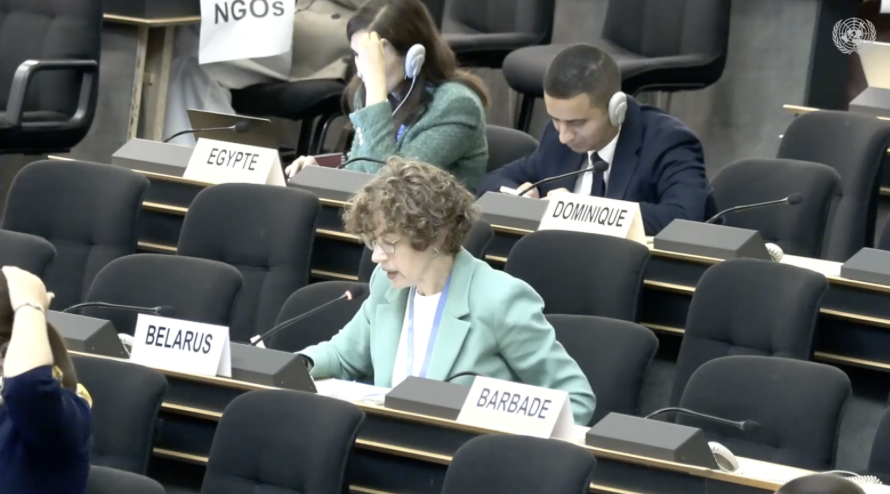
The delegate of Belarus categorically rejected the arbitrary nature of the cases mentioned in the report. She recommended that the WG refrain from sending requests without verifying the source of the information.
Statements from national organisations and NGOs
Several concerns were raised over many irregularities in cases of detention, especially over Israel’s systematic use of arbitrary detention as a means of repression, which has increased since 2023. NGOs highlighted a disturbing pattern of abusing national security laws to detain journalists and pro-democracy campaigners arbitrarily. They drew the WG’s attention to specific cases. Several organisations called for the WG to ensure PTD and its alternatives are culturally and age-appropriate.
Conclusions
Dr. Yudkivska introduced her concluding remarks by thanking the States and addressing their questions. She expressed her gratitude towards Canada and for their commitment to continue meaningful dialogue and introduce non-custodial measures. She reiterated the WG’s deep commitment to meaningful dialogue regarding communications but emphasised that it is inherently an adversary process. She reminded the Council that States have every opportunity to respond to and counter those communications, but she stressed that such a process only works when both sides are engaged, thus emphasising the importance of governments’ cooperation. She reiterated the WG’s commitment to justice and its acceptance of all relevant information to uphold the truth, even after the deadline for communications.
She addressed the criticism of the double standard and lack of geographic balance by reminding the Council that the WG worked on cases submitted to it. In other words, the higher number of complaints of arbitrary detention in certain countries or regions indicates that civil society is aware of such practices and seeks to use them to improve the human rights situation.
Regarding concrete steps States could take to strengthen alternatives to PTD, Dr. Yudkivska urged States to ensure their legal frameworks offer an array of PTD, as well as robust institutions and infrastructure. She encouraged States to use PTD as a mirror reflecting the health of the justice system, despite the systemic problems undermining it. She stressed it is a question of human dignity and denounced States weaponising laws to silence critics across the world, defining it as a systemic suffocation of democratic discourse.
Dr. Yudkivska concluded by reiterating the WG’s gratitude to the many delegations who have acknowledged its work and thanked Guatemala, Chad and the Republic of Korea for their invitations and for their meaningful engagement in the dialogue. She encouraged all States to open their doors to international scrutiny. She reiterated that implementation of the WG’s communications is not just about individual cases but about building a justice system that protects everyone. She ended her by emphasising that the year 2024 demonstrated that the WG’s mandate works when States cooperate, that systematic engagement with opinions, visits and reports produce real results, but that this success depends on State partnership and on their willingness to transform opinions into concrete actions.
Position of Geneva International Centre for Justice (GICJ)
Geneva International Centre for Justice (GICJ) commends the WG’s vital efforts to bring an end to the injustice that is arbitrary detention, applauding its opinions, appeals and recommendations and its key role in ensuring respect for international law. We condemn reprisals and intimidation against individuals who seek and collaborate with the WG and call on all States to fully engage with the WG by responding to its communications and urgent appeals, allowing it to fulfil its mandate without constraints. GICJ expresses its gratitude to those who have meaningfully engaged with the WG.
We are particularly concerned regarding the widespread cases of arbitrary detention in the Occupied Palestinian Territories, where men, women, children and the elderly are frequently subjected to detention without charge or fair trial guarantees. The extensive use of administrative detention raises serious concerns under international human rights and humanitarian law. Such practices not only violate the right to liberty and due process but also contribute to a broader climate of fear, repression, and systemic discrimination.
GICJ exhorts States to recognise the detrimental impact arbitrary detention has on individuals and the international community, and to refrain from arbitrarily detaining human rights defenders, activists, lawyers, and journalists and individuals for expressing their opinions and for doing their work. We call on governments to ensure the availability and accessibility of a broad range of alternatives to pretrial detention, to ensure they are appropriate and achievable, without discrimination.




